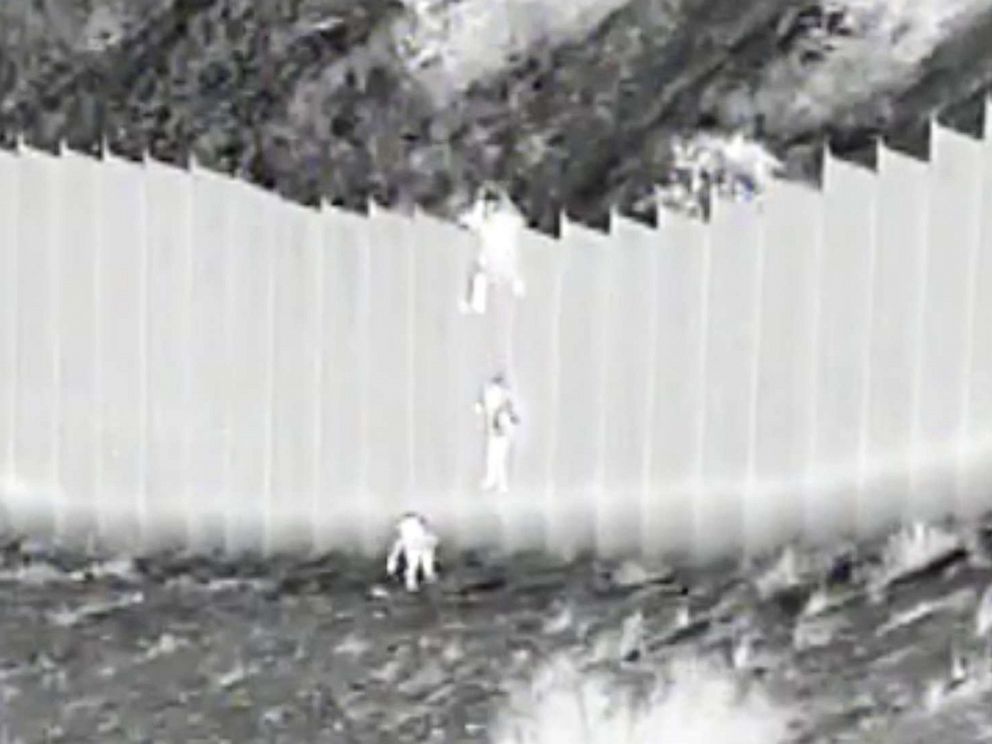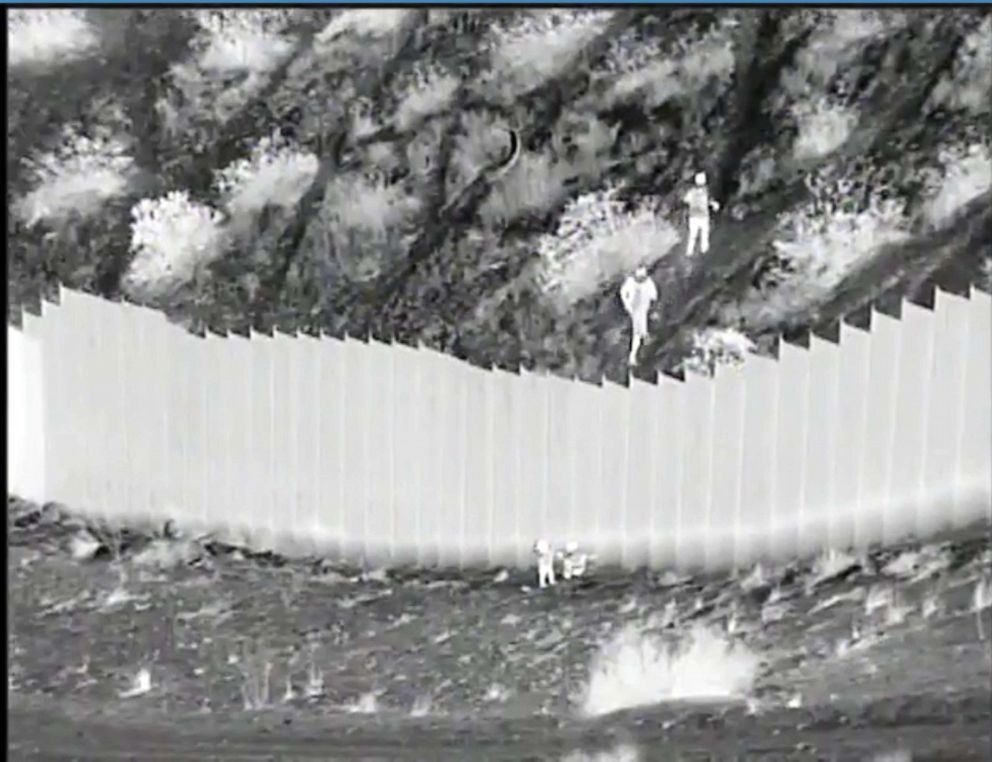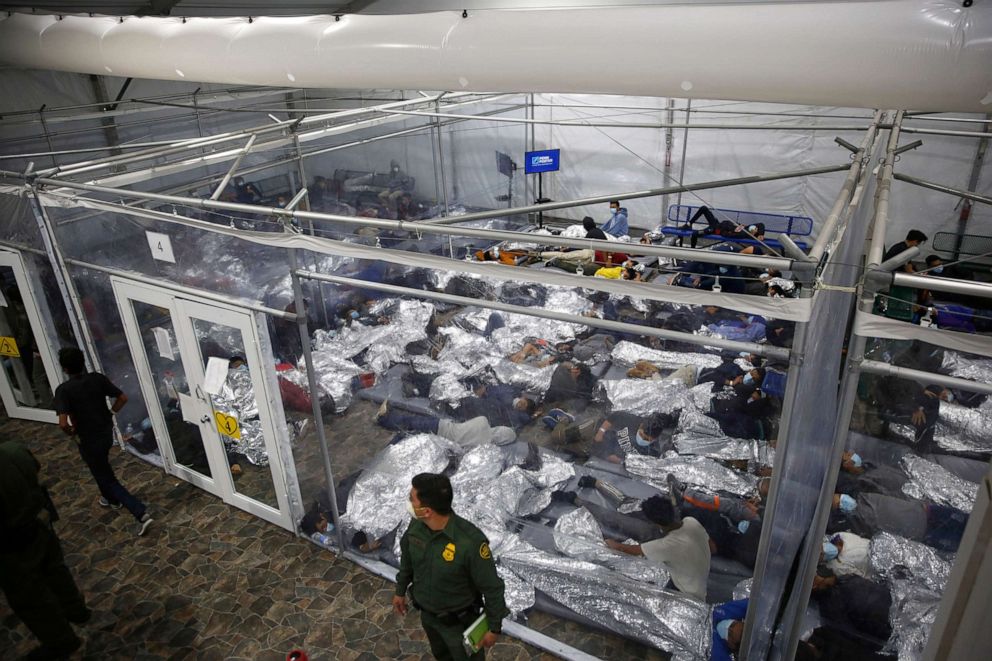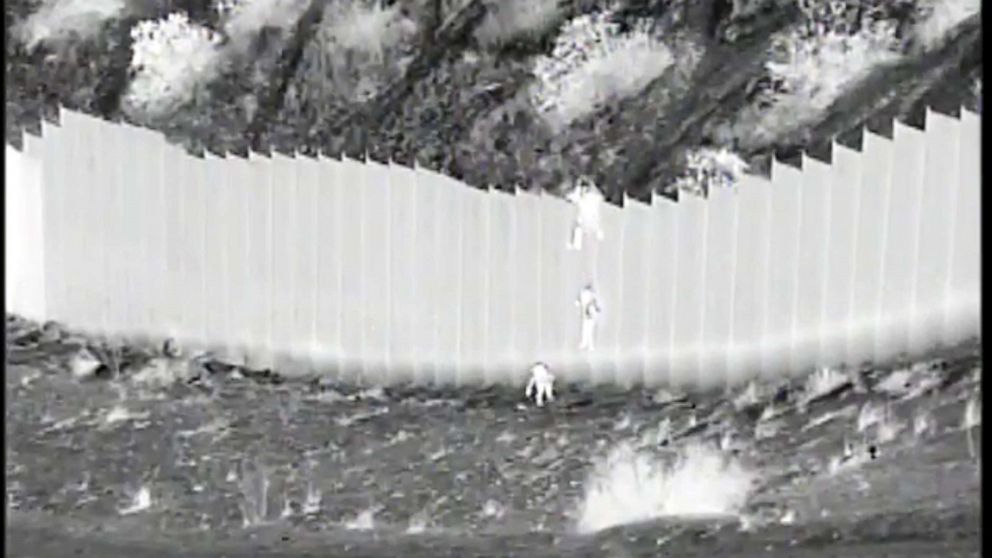Video shows smugglers dropping 2 children from 14-foot border fence into US, authorities say
Smugglers were caught on camera dropping two young children from the top of a 14-foot-high border fence separating the United States and Mexico, authorities said.
The U.S. Customs and Border Protection (CBP) released video of two people bringing the children to the border barrier on the Mexico side on Tuesday night. One person is seen scaling the fence and dropping the children onto the U.S. side. After both children land on the ground, the person atop the fence climbs back down to the Mexico side before two people are seen running away.
The smugglers were under cover of night, but a border agent captured the incident on a cellphone camera using night-vision technology. Other border agents were alerted of the incident and directed to the remote location near Santa Teresa, New Mexico, where they rescued the two unaccompanied migrant children -- a 5-year-old girl and a 3-year-old girl. The pair are sisters from Ecuador and both were "alert" when agents found them, according to a press release from CBP.

Agents rendered aid to the children before taking them to the Santa Teresa Border Patrol Station for medical evaluation. The sisters were then transported to a local hospital "for precautionary reasons and further evaluation." Both were medically cleared and currently remain in CBP custody pending placement by the U.S. Department of Health and Human Services, according to CBP.
"I’m appalled by the way these smugglers viciously dropped innocent children from a 14-foot border barrier last night," El Paso Sector Chief Patrol Agent Gloria Chavez said in a statement Wednesday. "If not for the vigilance of our agents using mobile technology, these two tender-aged siblings would have been exposed to the harsh elements of desert environment for hours."
"We are currently working with our law enforcement partners in Mexico and attempting to identify these ruthless human smugglers so as to hold them accountable to the fullest extent of the law," she added.

The United States has been grappling with a surge in migrants arriving at its southern border in recent months. The number of children and families attempting to cross the border increased by more than 100% between January and February. Meanwhile, the amount of children trying to cross the border alone jumped by 61% to over 9,400, the highest monthly total since the spring of 2019, according to statistics released last month by CBP.
From March 15 to March 21, the number of unaccompanied migrant children who had been in CBP custody for more than 240 hours increased from 185 to 823, a nearly five-fold increase, according to data obtained by ABC News from a source.
After three days, CBP is legally obligated to transfer the children to the U.S. Department of Health and Human Services' Office of Refugee Resettlement, which oversees shelters specifically licensed to house young migrants but apparently lacks the bandwidth or sufficient number of beds to account for the influx. In an effort to speed things up, U.S. Homeland Security Secretary Alejandro Mayorkas has ordered case workers who are tasked with facilitating these transfers to work seven days a week.

The number of children who had been in CBP custody over the 72-hour legal cap was 3,314 on March 21, the data shows. From March 15 to March 21, CBP had held a total of at least 22,586 children in custody for more than 72 hours, including 3,437 who were held for more than 240 hours, according to the data, which didn't include a category for stays longer than over 240 hours.
Since taking office on Jan. 20, U.S. President Joe Biden has reversed many of the controversial immigration policies that his predecessor, Donald Trump, put in place, including the practice of immediately expelling unaccompanied children and teenagers.
Critics say the Biden administration should have been better prepared to manage migration flows before relaxing policies. However, migration is driven by many factors, and the exact impact of Biden's policies is unclear.
ABC News' Matt Gutman contributed to this report.




